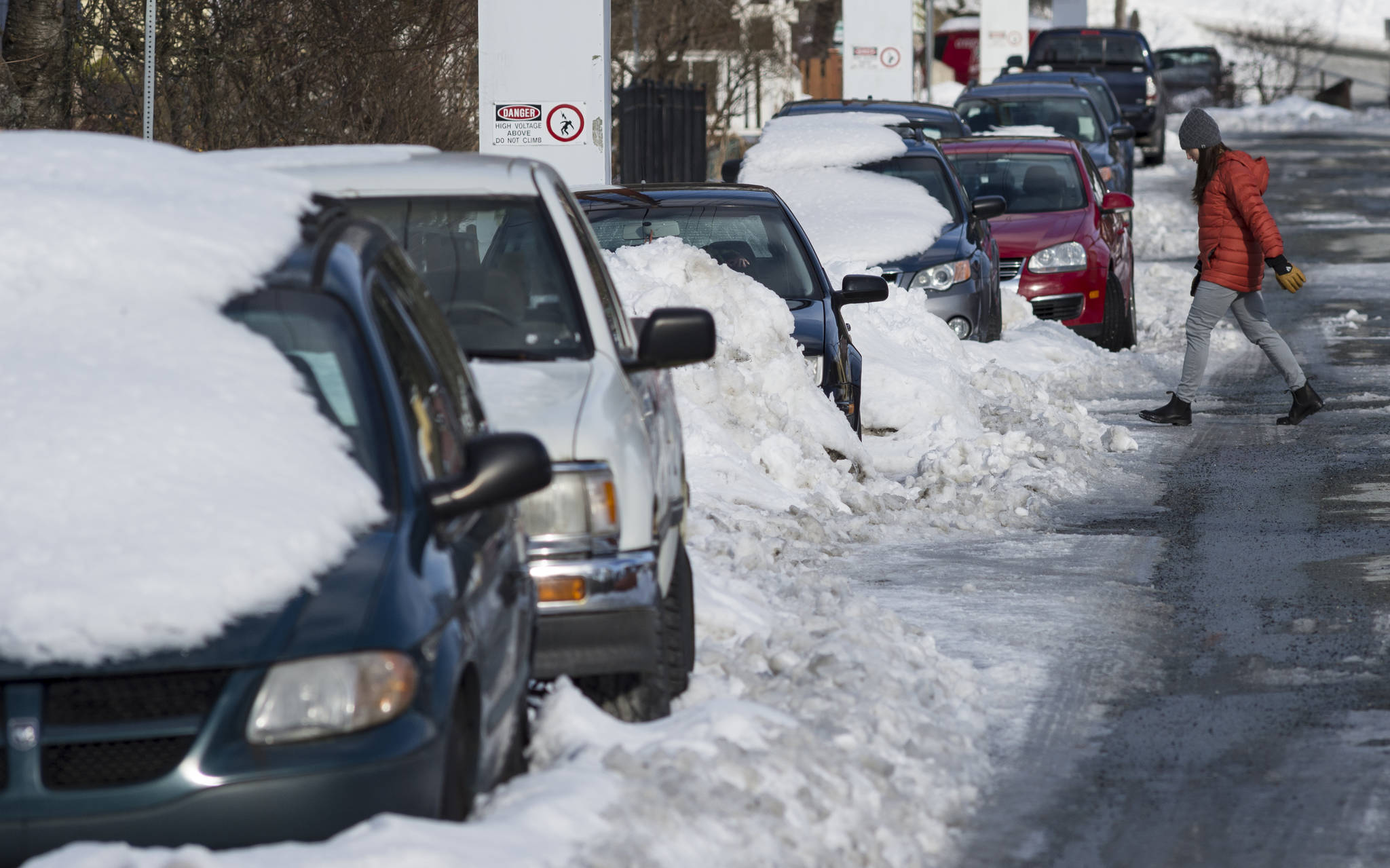Juneau has just finished its coldest February since 1994, according to the National Weather Service office here, and climate forecasters say they expect chilly conditions to continue through March.
According to figures released Thursday morning, Juneau’s temperature — measured at the airport, the city’s official measuring point — averaged 23.1 degrees in February. That measurement was seven degrees below the normal of 30.1 degrees for February, and it was the 14th coldest February since measurements started at the airport in 1936.
The coldest February came in 1972 and averaged 11 degrees.
Temperatures were below normal across Juneau, not just at the airport: 27.2 degrees downtown; 25 degrees in Auke Bay; 21 degrees in the Mendenhall Valley.
Rick Fritsch, the climate specialist at Juneau’s weather service office, said the cold weather wasn’t unexpected: The National Weather Service’s Climate Prediction Center, based on the East Coast, had forecast cold and dry conditions as far back as January.
“They pegged February for us at least a month or two out as being a very high probability of being colder and drier than normal, and it was exactly that,” Fritsch said.
By phone, he explained that the cold weather was the result of high-pressure weather systems over Interior Alaska and western Canada. With high pressure inland and low pressure in the Gulf of Alaska, cold, dry air flowed from inland areas to the coast.
“The colder, drier air just kept coming at us from Canada for the whole month,” he said.
That brought cold conditions to all of Southeast Alaska, not just Juneau. According to an analysis performed by Brian Brettschneider of the University of Alaska Anchorage, Southeast was the only portion of the state to have temperatures below normal for climatological winter, the three months that includes December, January and February.
December – February temperature departure from normal in Alaska using station data. @AlaskaWx pic.twitter.com/qgUWdCPkfk
— Brian Brettschneider (@Climatologist49) March 1, 2018
Conditions in February were also much drier than normal. At the airport, only 2.35 inches of precipitation (rain and melted snow) was recorded. The normal figure is 4.13 inches. With temperatures low, much of that precipitation fell as snow. The airport recorded 16.2 inches of snow, less than an inch below the 16.8 inches that is normal for February. (In Juneau, February is the second-snowiest month, after January.)
In Juneau, winter snowfall typically comes when warm, moisture-laden air arrives from the Gulf of Alaska and overruns cold air already in place.
Fritsch said the ideal situation for heavy snowfall in the capital is when cold air has had time to settle over the area, seeping into all the nooks and crannies of Juneau’s wrinkled topography. Otherwise, the warmer air tends to sweep away the existing colder air like a snowplow blade scraping a street, Fritsch explained.
That latter scenario is what happened in mid-February, as more than half an inch of precipitation fell at the airport on Feb. 12. At the airport, the precipitation started as snow, but by the next day, temperatures had risen to 38 degrees, warm enough that the snow turned to rain.
At higher elevations and in narrow valleys, it’s more difficult for the warmer air to penetrate quickly. As a result, 30.4 inches of snow was recorded in February at the National Weather Service Office in the Mendenhall Valley. Auke Bay, which experiences conditions more similar to the airport, saw 15.5 inches of snow.
In February, the warmer air tended to disappear once the clouds did. That has allowed the month’s snow to linger for an unusually long time. As of Friday morning, there has been snow on the ground at the airport for 38 days, the longest consecutive stretch with snow since 2009 (58 days).
There’s a good chance for the snow to linger a while longer: The Climate Prediction Center is forecasting a better than 50 percent chance that temperatures will remain below normal in March. The short-term forecast is backing up that expectation. Forecasters here in Juneau are predicting sunny skies and high temperatures in the mid-to-low 30s through next week.
• Contact reporter James Brooks at jbrooks@juneauempire.com or call 523-2258.

